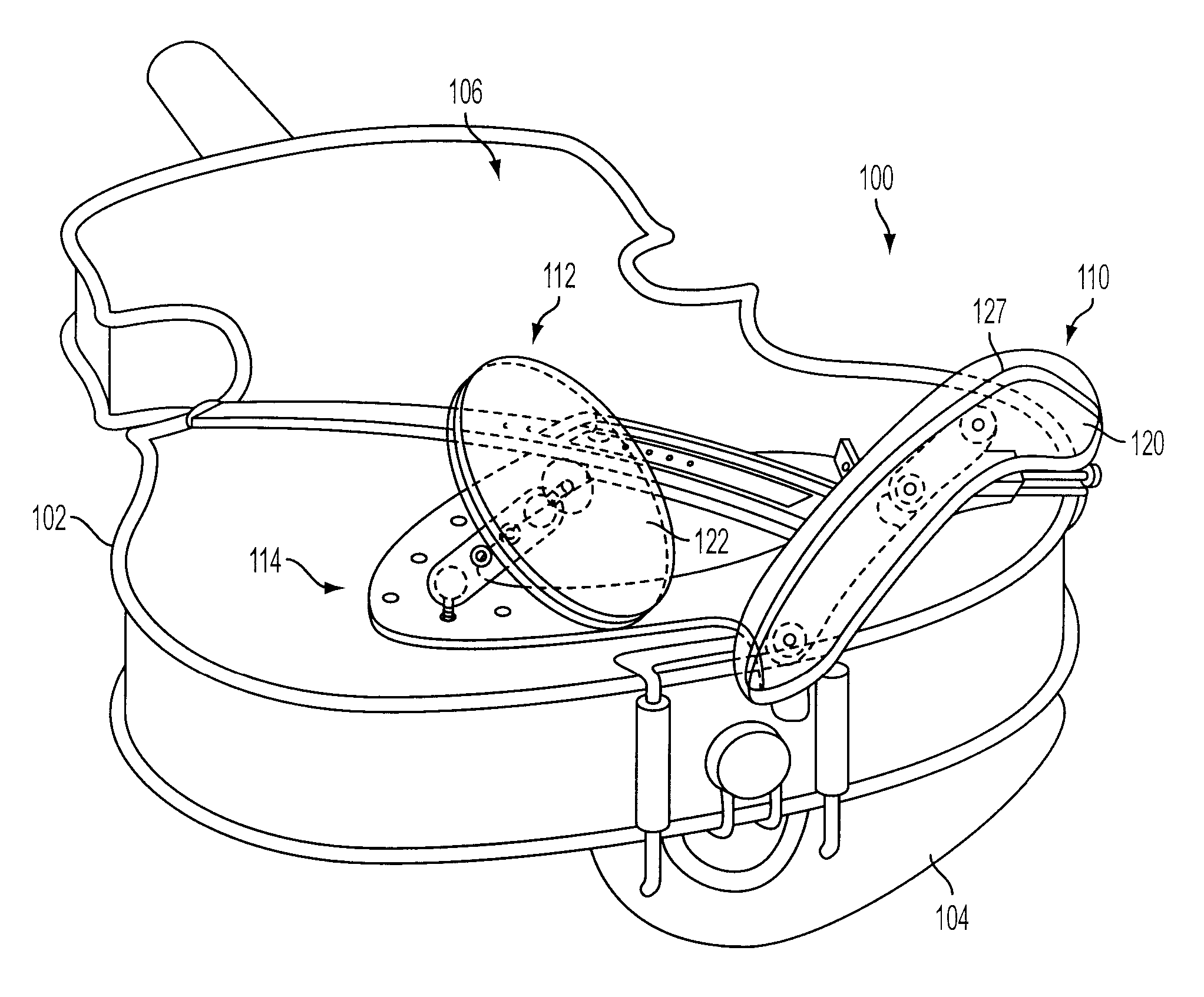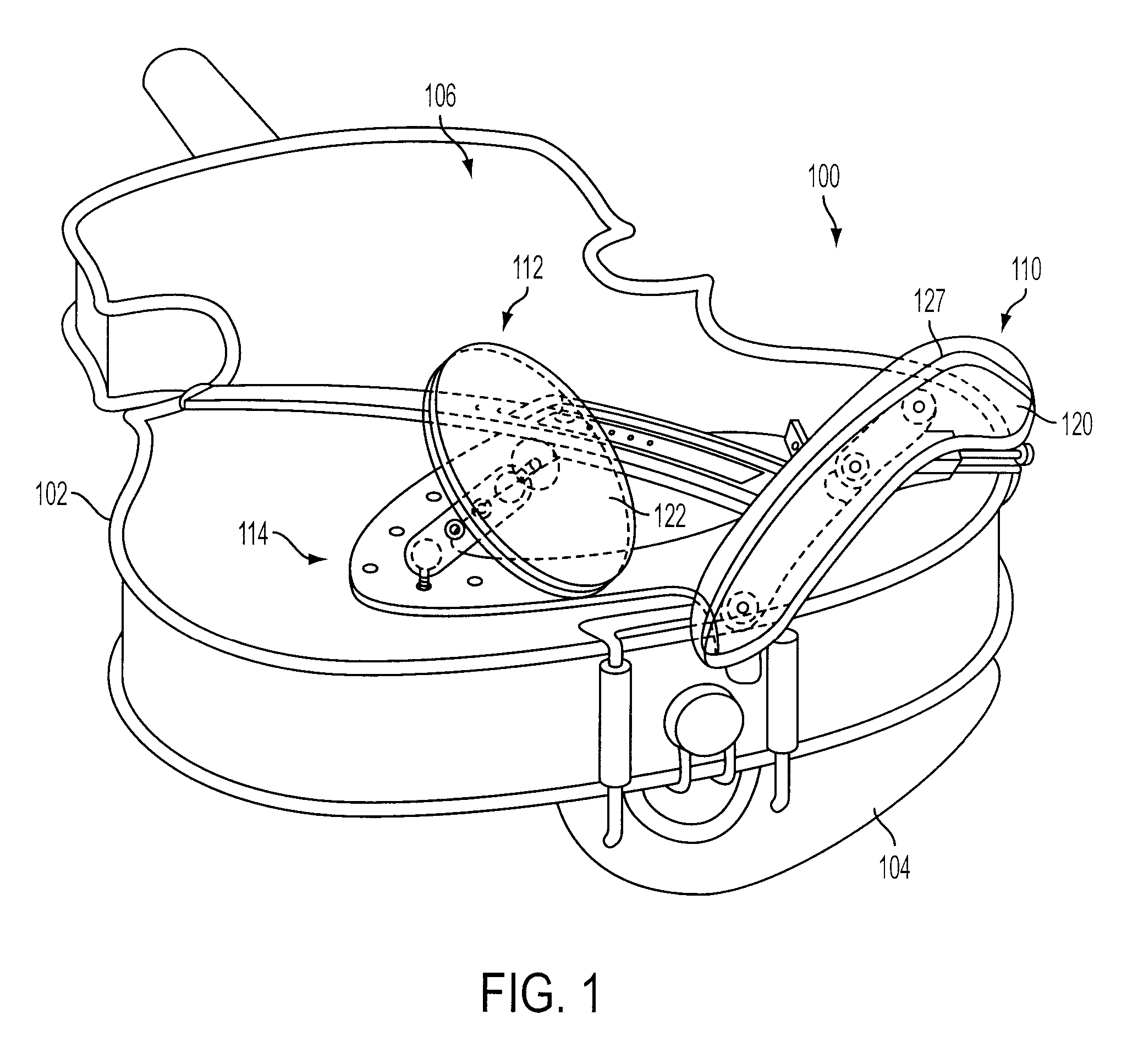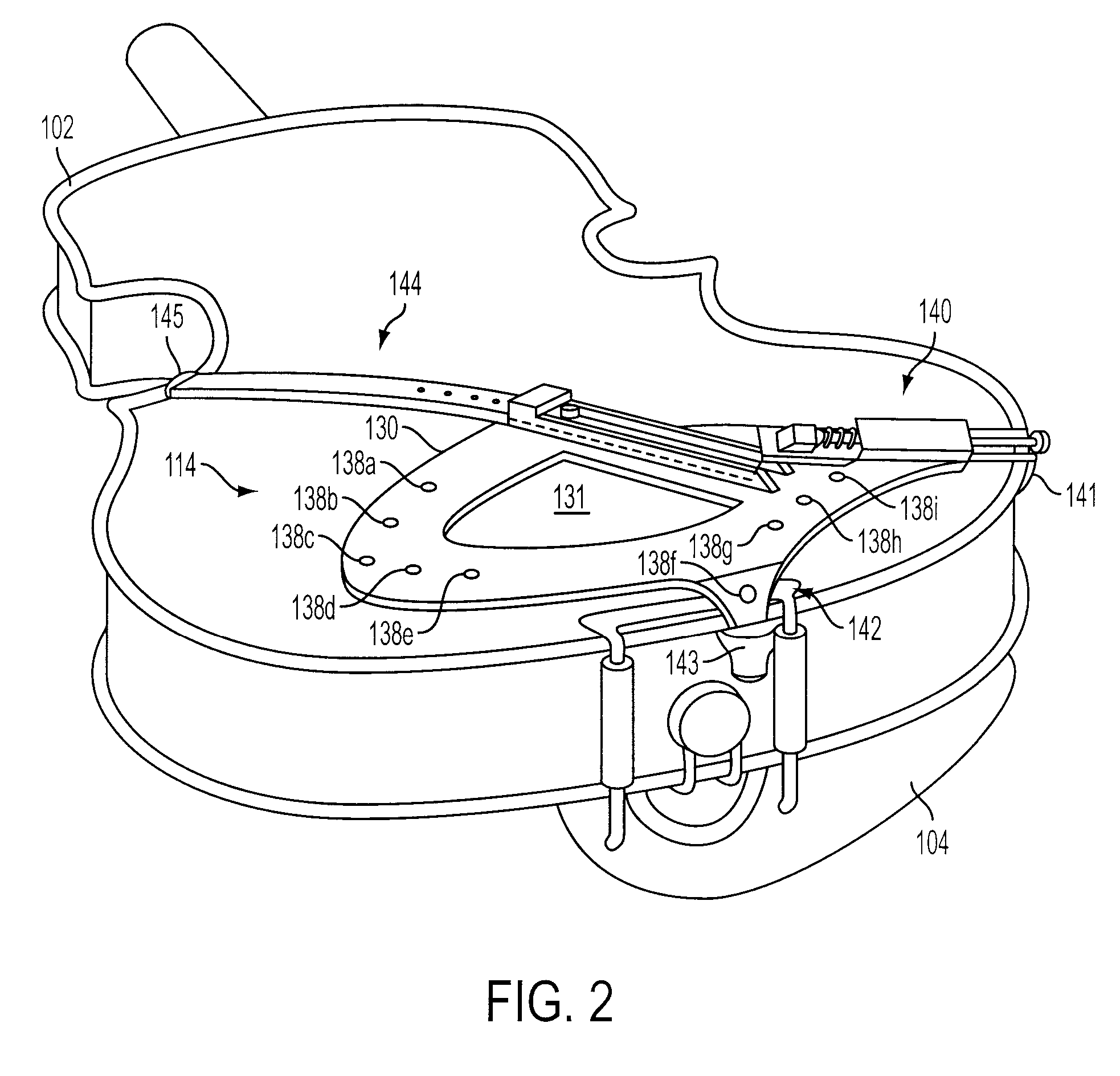Instrument support
a technology for supporting instruments and instruments, applied in the direction of instruments, instruments, instruments, etc., can solve the problems of not being able to fully adjust the design of existing shoulder rests to accommodate differences among players, and the design of existing shoulder rests has generally failed to meet the need for a secure and anatomically suitable support below the instrumen
- Summary
- Abstract
- Description
- Claims
- Application Information
AI Technical Summary
Problems solved by technology
Method used
Image
Examples
Embodiment Construction
[0024] Referring to FIG. 1, an instrument support 100, consistent with one embodiment of the present invention, is shown for use with an instrument 102. The instrument support 100 supports the instrument 102 on the player's collar-bone / shoulder and chest regions, as will be described in greater detail below. The instrument support 100 may be used together with a chin rest 104 of the various types known to those skilled in the art. In the exemplary embodiments, the instrument support 100 is used with a violin or viola. Those skilled in the art will recognize that the instrument support may also be used with other types of instruments that are positioned between the player's chin and collar-bone / shoulder and chest regions.
[0025] One embodiment of the instrument support 100 may include a collar-bone rest 110, a chest rest 112, and a mounting system 114. The mounting system 114 mounts the collar-bone rest 110 and the chest rest 112 to the back side 106 of the instrument 102. The collar...
PUM
 Login to View More
Login to View More Abstract
Description
Claims
Application Information
 Login to View More
Login to View More - R&D
- Intellectual Property
- Life Sciences
- Materials
- Tech Scout
- Unparalleled Data Quality
- Higher Quality Content
- 60% Fewer Hallucinations
Browse by: Latest US Patents, China's latest patents, Technical Efficacy Thesaurus, Application Domain, Technology Topic, Popular Technical Reports.
© 2025 PatSnap. All rights reserved.Legal|Privacy policy|Modern Slavery Act Transparency Statement|Sitemap|About US| Contact US: help@patsnap.com



